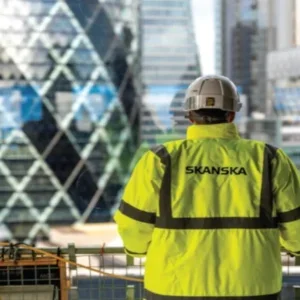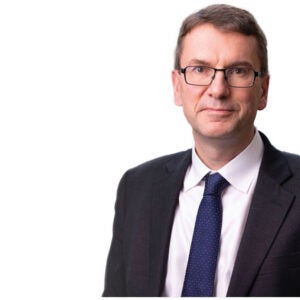
Since 1992 Finance Director Europe has been providing CFOs and finance leaders with essential information to help plan for the future of their companies. But business priorities are constantly changing, and companies are facing a whole new set of challenges in the post-Covid future. Finance and accounting teams must, therefore, adapt to support new goals, expectations and experiences. Operating in times of major uncertainty, companies are turning to finance to guide them with faster, more accurate business insights and forecasts.
To meet these expectations, finance needs to move away from being a transactional cost centre to becoming a forward-looking function, data guardian and engine of transformation. But first, CFOs must adopt and embrace new technologies, take on new roles and skills, and become a strategic business partner.
The virtual CFO symposium, which will take place on 18 March 2021, will not only allow delegates to meet like-minded professionals and share best practices, but also provide attendees with insight into how the finance function can connect internal and external ecosystems, deliver predictive insight, build an adaptive workforce and embrace the latest technologies to help businesses stay ahead of risks and opportunities. One of the confirmed speakers is James Kidd, deputy CEO and CFO of AVEVA. The company recently joined the FTSE 100 index and has been hailed as one of the UK’s leading tech successes. While Covid-19 decimated many businesses, the company announced that it had no plans to use government funding or furlough schemes, and had retained all of its staff. What’s more, bosses donated 10% of their pay to support workers’ communities.
On the agenda
As a CFO, making the right strategic decisions is often tough in a fast-paced world. The virtual symposium will explore the set of core principles needed to successfully balance a multitude of financial, social, and environmental considerations.
Meanwhile, the deployment of ultrafast 5G mobile broadband has taken place in cities around the world. While tin-foil hat wearing conspiracy theorists may fear the technology, its potential to transform the corporate world is substantial and should not be ignored. The symposium will feature a discussion about the rollout of 5G, what it means for business-to- business communication and how this can help finance professionals in the long term.
Elsewhere, a group of 36 high-profile CFOs and financial directors recently signed a statement published by Accounting for Sustainability (A4S) in support of achieving net zero emissions by 2050. The event will host a debate about how finance professionals can take on the challenge of making their companies more environmentally friendly while continuing to maximise profits. An eclectic mix of interesting talks and presentations await, and the team at Finance Director Europe look forward to hosting the online event.
The new normal
In 2019 Ken Bowles, a headline speaker at the symposium and finance director at Smurfit Kappa, one of the world’s largest packaging companies, won the prestigious Irish Times’ CFO of the year award. He’s been at the FTSE 100 company for 26 years and seen it grow exponentially in that time. Over the years, Bowles was used to meeting regularly with his close-knit team, so he has had to fundamentally change his working processes amid the crisis in order to adapt to the new normal.
“Once you get over the hurdles that I think we’ve all had to get over – looking at yourself on camera, figuring out which platform you’re on, WebEx, Teams, Skype and everything else, we’ve worked well through it,” he says. “And now, we can’t remember a time when we didn’t use this technology to help us every day. It was the investment in IT systems across a long number of years that meant that we could run the business virtually remotely.”
Bowles now believes that, as an organisation, Smurfit Kappa has signed up to the idea that work in the future should be different from the reality we knew before. He points out that the company has always been quite progressive with the way it looked at how people organise their days, in terms of variable working hours. The pandemic has served as a ‘proof of concept’ around remote working for the company, showing what is possible and what options employees would like to have moving forward.
“Getting the balance right between productivity, development and mentorship is the key challenge,” he explains. “I think people have either enjoyed a slightly better work-life balance or been restricted by Covid-19. But they can certainly see a time when that balance will be restored. People have more time in their day and are more productive. This is because they’re able to manage their time better without having to worry about what other people are doing around them, or whether people are looking at them.
“They might even have somewhat strengthened relationships because they’re forced into a situation where they need to keep in touch with people,” Bowles continues. “When you see people on corridors and in offices, you might think they’re okay. But when you actually reach out to people in your teams virtually, just having a five-minute chat is a very valuable thing.”
Bowles explains that his team are now buying into a philosophy where if the plane ride is longer than the meeting, they should probably think again about taking it. “When people see the cost savings and the time they can spend with their people, rather than travelling somewhere, I think those gains have been massive,” he says.
10%
The amount bosses at AVEVA donated to their local communities.
AVEVA

Taking action
This reduction in travel has, of course, had a positive effect on the environment, with pollution and CO2 levels falling across Europe during lockdown. At the same time, David Attenborough’s recent documentaries have increased the spotlight on the packaging industry, and its impact on the planet, like never before. Pre-dating this increased scrutiny from consumers, however, Smurfit Kappa has been completing sustainability reports for over 14 years.
“Somebody is always willing to teach you something, so I’ve always been challenged along the way, but fundamentally it’s an incredible place to work. And that’s because of the people that I get to work alongside every day.”
The company began in paper mills in small towns, where a community was built around them. This makes the business integral to the neighbourhoods in which it operates, and fundamentally woven into the fabric of that society. “It therefore becomes our mission and, indeed, our responsibility to ensure that everything we do is done in a way that leaves as little impact on the world around us as possible,” Bowles explains. “The consumer has now woken up to the idea that there is a better way to consume and they don’t need single waste or single use plastic to do that. I think we’ve seen a shift towards products that are recyclable, because otherwise people will step away and not buy them anymore.”
In light of this, Smurfit Kappa has raised its sustainability ambitions, targeting at least net zero emissions by 2050. These goals are to be validated by the Science Based Targets initiative, in line with the objectives of the Paris Agreement. Prior to this announcement, Smurfit Kappa had already seen a 32.9% reduction in CO2 emissions – well on track for its 2030 target of 40%. This was achieved with the help of key projects in the company’s medium-term strategic plan, including the installation of an industry-leading recovery boiler at its Nettingsdorf paper mill in Austria, which began operations in June 2020. The new boiler is set to cut CO2 emissions by an additional 40,000t, which translates into an additional 1.5% reduction in emissions across the business.
Not just a box
And, while the company’s sustainability efforts have gone from strength to strength, Bowles’ career has also progressed and evolved in tandem over the last two decades. He explains that one of the biggest challenges he has faced was when the corporation had an unsolicited bid from a competitor in the US.
“I didn’t put a ‘for sale’ sign on my door,” he says. “So, if you want to buy, you have to make me interested, and it never happened. But that six months was an incredible learning experience. Nobody teaches you that stuff in business school and you don’t learn it elsewhere either. You’ve got to go through that pressure cooker. What was really interesting was how everybody reacted around it – there is a real sense of community within the organisation and teams coming together. But, also, we went out with a plan of how we’re going to grow, and I think we’ve executed that plan.”
When Bowles joined the organisation, boxes were just simple brown items that were designed to make something else go somewhere else and be protected. Now, however, the box is a powerful marketing medium and a consumer product in its own right.
“I’ve been a part of that journey and progressed through many different roles in the organisation to get to my current role as CFO,” he concludes. “Somebody is always willing to teach you something, so I’ve always been challenged along the way, but fundamentally it’s an incredible place to work. And that’s because of the people that I get to work alongside every day.”






